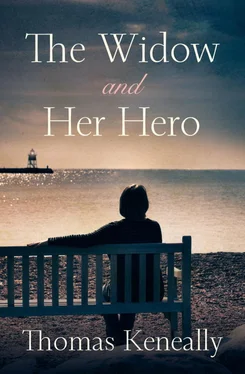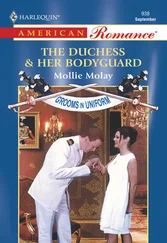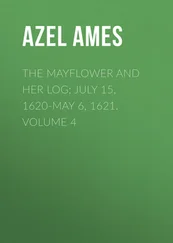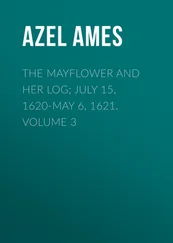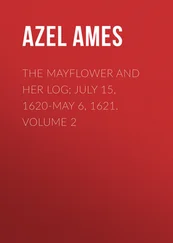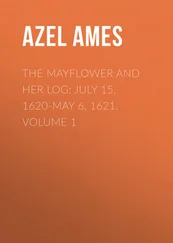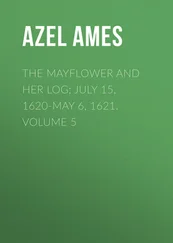The personnel at SOE failed to get the news to Doucette before his plane took off from Croydon airfield, but it was waiting for him when he arrived in Malta. Immediately, he sent a message to IRD, and Captain Foxhill passed the welcome news to Mortmain and Leo, who brought it home to Dotty and me.
By now, Dotty had forgiven Rufus for whatever had happened earlier. She and I had become firmer friends still, and on the days we didn’t work, she showed me things to read – Auden, and T. S. Eliot’s ‘Prufrock’ verses and Mrs Dalloway, Sons and Lovers , and Stella Gibbons’s Cold Comfort Farm . I began to write a few tentative verses myself, a sign that Dotty was having a potent influence on me. The other thing about her was that she spoke with great frankness, to the point that would actually be considered impoliteness in my own painfully polite family. In a bush town, a bank manager like my father was considered one of the gentry, and although the children of undistinguished English and Scottish immigrants, my parents did their best to behave in the manner in which they thought the British privileged classes did. With only an occasional etiquette guide, and tips on good behaviour in the weekend papers and the Women’s Weekly for directions, they avoided uttering bruising truths. Dotty didn’t. Thus the morning after Leo and Rufus brought Doucette’s good news home, I found Dotty very depressed and, over tea, she was very quick to tell me why.
This will make Doucette even more unstoppable, she told me. I’m glad the woman and her son have been saved, of course. But Jesse Creed showed me a report about how short the Japanese are of steamships. Doucette will want to blow up the entire Japanese merchant fleet now, and end the war. And he’ll want Rufus and Leo with him. And Rufus will go of course.
I felt a pulse of fear too, and for the first time. Leo was so much part of my world that I had never doubted his survival. To an extent this was a symptom of my innocence. Young captains bearing the DSO and resembling Errol Flynn weren’t in any real danger, were they? Leo had told me he and Rufus were chiefly advising IRD on equipment, and they kept fit because at any stage they might be needed as instructors. Leo had also mentioned that he and Rufus might be sent by sub on a non-attack run to lay a depot here or there in the islands, but would I keep that to myself. I asked him was he comfortable in a submarine, and he said, No reason why not. I mean, they’ve got air down there.
It was partly Dotty’s unconscious demeanour of knowing so much more than I did. If she, a novelist and a poet, had grounds for alarm, then alarm must be the proper mode. I wanted Leo to be like Major Enright, stuck to a desk in Melbourne, going out to Essendon now and then to practise putting wing charges on military aircraft, so that he could in turn instruct commandoes on how it was done.
The simple truth was that I found it easier to believe in my own death than in Leo’s. Earlier in the war he had come through the bombing of Darwin, and through whatever he and Rufus and Doucette had done. And in fact, the main lesson he took from the good news about Doucette was that he might now learn something about his father. From his contacts in Intelligence, he told me, he suspected his father had also been shipped to Japan. But at least I had not got from him any sense that he intended to blow up Japanese fleets as a way of personally liberating his father. His father’s capture was a phenomenon locked up in the giant nature of the war, beyond any individual input.
But Dotty’s concern about Doucette and his plans put the first shock of panic into me.
As Doucette himself approached Australia, aircraft by aircraft, outpost by outpost, it seemed that the entirety of IRD devoted itself to interpreting Mrs Doucette’s and her son’s imprisonment. And Major Foxhill had acquired through Colonel Jesse Creed a remarkable American reconnaissance photograph, taken from a few hundred feet, of the building and its grounds, a photograph which Leo would show me one lunchtime when I came to his office. It was of a convent like any Catholic convent anywhere, but surrounded by rich farmland. The letters PW were hugely visible in the front garden of the place. The weather on that plateau, Foxhill had ascertained, ranged between 0°F and 75°F.
It struck me as very strange for the returning Doucette that he should know exactly where and at what temperature his wife and child were held captive. It doesn’t seem so bad, said Leo of the place in the photograph. You could see in him the hope that his own father was held somewhere equally unthreatening.
One evening, Leo and Rufus came home with a light in their eyes. Doucette had returned. There would be a party at the Foxhills’.
In the office we congratulated the Boss on the news about his wife and son. Rufus and I noticed how hollowed-out he looked though, but he was excited too. When he smoked he left his cigarette unlit for a time and jabbed the air with it, telling us about the Silver Bullets, the new submersibles he had ridden in England. He showed us photographs and plans of them. He had a feverish light in his eyes which picked us up too.
We realised, I think, that we’d got a bit flabby in his absence. Our dagger-throwing skills had improved marginally, so that maybe we could have got a job in a sideshow. But we had been drifting. Now we could feel the current was back, and the current was Charlie Doucette, the Boss.
He told us the submersibles would be testing for some chaps. Some of them wouldn’t like this new device, there’d be cases of claustrophobia and panic, since you could lose all sense of up and down when riding them. I knew I was going to find it hard, just from the description of the tight mask, but I can’t imagine that Rufus or Rubinsky or Blinkhorn or Doucette’s old bowman Pat Bantry will have any problems. And we were exhilarated to think of as many as twenty of these near invisible craft creeping into anchorages with loads of limpets.
At calmer times, the Boss said that he had been rather comforted to see that reconnaissance photograph of his wife’s prison.
Good old Jesse Creed provided that, Rufus reminded him.
Kind of him, the Boss admitted. The place, he said, certainly didn’t look like a hellhole, and the good thing was in that climate Minette and the boy were a long way from the risk of malaria and dengue fever and beriberi. He didn’t make much of it in military terms, he didn’t make the news the basis for any ‘once more into the breach dear friends’ speech. So we were a bit surprised by his intensity in the next overall planning meeting.
We were all in the conference room with its empty fireplace and a late afternoon hot wind from the Western Districts was blowing in at the door to the balcony. Everyone seemed awed by Doucette for a number of reasons – the submersibles as well as his record. That stale old bugger Doxey had the chair of course, and there was Foxhill, Enright, D/Plans, the head of Navy plans as well, then the head of IRD Intelligence, and Colonel Jesse Creed. Rufus reported on the junks a shipyard in Melbourne was making for us, and the fact that the shipwrights thought that the war was as good as over, and had no inhibitions about going on strike. It couldn’t be predicted, said Rufus, whether the junks would be ready in time for use before that year’s monsoon. Jesse Creed reported that the proposed base on Great Natuna would be equipped with Bolton long-range radios, but that operatives would be fitted out and trained in the use of the new hand radios called walkie-talkies. The Boltons would enable contact with IRD and the Melbourne Ultra signal centre, of which Jesse Creed was supervisor.
Читать дальше
